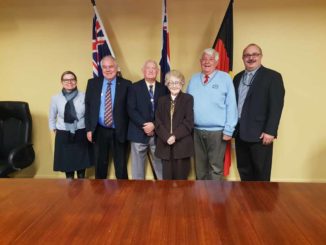The Far North West Joint Organisation of Councils (FNWJO) has been awarded a grant to employ a contaminated land officer for up to three years under the NSW Environment Protection Authority Council Regional Capacity Building Program.
This grant will support Cobar, Bourke and Walgett Shire Councils with each council contributing $20,000.
A contaminated land officer will support the three communities with their assessment procedures and registers for managing contaminated land and underground petroleum and piping issues.
A small team of contaminated land specialists will be engaged initially to review what systems and protocols the FNWJO member councils of Bourke, Cobar and Walgett Shire’s have currently in place to address their legislative requirements.
They will assist them in the identification of any issues and set up appropriate systems and processes, in consultation with the Councils, to address them.
Once systems are established, a contaminated land officer will be employed for the region to work with the Councils and their respective communities to manage the contaminated land and underground issues in the Shires.
Chair of the FNWJO, Mayor of Cobar, Cr Lilliane Brady OAM said the program aims to build capacity in the management of contaminated land and underground petroleum issues in NSW by providing grants to Council Regional Capacity Building Officers.
“The project will set up systems and will provide expertise to assist in dealing with land contamination issues arising from historical underground fuel tank leaks or land which was formerly used for industrial activities.
“Bringing this expertise to our region and upskilling councils through training will help to protect our community and environment now and for the long term,” Cr Brady said.
The grant is through the NSW
Government’s $4.2million Council Regional Capacity Building Program, which runs from 2018-2021 with the EPA (Environment Protection Agency) permitting an accelerated project plan, to absorb delays caused by the hardship of drought and challenges of recruitment.
Under the Contaminated Land Management Act 1997 (CLM Act), the EPA regulates contaminated land where the contamination is significant enough to warrant regulation.
Contaminated land that is not regulated by the EPA is managed by local councils through land-use planning processes.
The EPA was the appropriate regulatory authority for underground petroleum and piping matters until August 2019.
Councils have since taken over this role.
The EPA will continue to work with councils to ensure integrated management and regulatory oversight of fuel handling and storage systems.

